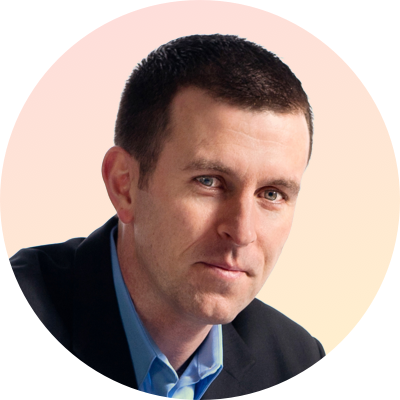Episode #5
Kristofor Lofgren: The power of purpose in attracting and retaining talent
In this episode:
Is pay really the number one reason why people stay with or leave organizations? Kristofor Lofgren, CEO of the Sustainable Restaurant Group, shares in this episode of the “Human-friendly Workplace” podcast how creating a culture of purpose has helped him to not only attract the most qualified employees, but also to keep them. He outlines how you can create a devoted workforce of leaders by treating employees like adults and showing empathy, sympathy, compassion, and thoughtfulness.
Get notified when season 2 starts
About Kristofor & the Sustainable Restaurant Group
The Sustainable Restaurant Group’s goal is to become the world’s largest collection of socially and environmentally sustainable restaurant brands. It is the parent company of Bamboo Sushi andand Quickfish. The idea behind both is to deliver healthy, sustainable, and affordable food to everyone.
Kristofor is the founder and CEO of the Sustainable Restaurant Group. He has shaped his life and work off of one motto instilled in him at a young age: “Be the change you want to see in the world.” After looking at the rise of the farm-to-table movement in the culinary industry, Kristofor thought about conquering the impossible by taking the practice to the next level with one of his favorite foods: sushi. That was the birth of the Sustainable Restaurant Group In 2008.
Creating a mission-based business
“Doing the right thing is oftentimes the hard thing, and doing the easy thing is oftentimes not the right thing,” Kristopher says about building a mission-based company. Most people are taught to create the easiest thing possible that will make them the most money, but Kristofor decided to rather aim to impact positive change in the world.
Being mission-based was not the easy road to take, but it has had a number of positive benefits: It has allowed the Sustainable Restaurant Group to hire and retain a higher calibre of people earlier in their development, and customers have a better experience because they feel good about where they are spending their money. Another benefit has been partnerships, with vendors and real estate owners making them their first choice because they are excited by their story. “We really do have a lot of net benefit that are not necessarily easy to see at the very beginning,” Kristofor says.
Building the mission into day-to-day operations
Kristofor says that the Sustainable Restaurant Group stands for “some very basic human believes.” These include decency, respect, communication, and integrity. At a base level, people want to be treated like adults, Kristofor maintains, like their opinion is important. And especially in a human capital-intensive industry like restaurants, it’s all about people.
The organization has built their core values in their marketing, training, and benefits packages. But more importantly, Kristofor believes their culture is built on the way the leadership team treats each other every day. That culture starts to spread and becomes the norm.
Maintaining and scaling culture as you grow
With the Sustainable Restaurant Group set to double in size in 2019, how to maintain and scale their culture is a hot topic. Kristofor says it all starts with hiring great people: “Who the leaders are, are who the teams are going to be reflective of.” Great leaders are demanding but also need to be compassionate and see people as individuals. That takes more time and empathy, but is integral to motivate employees—especially younger generations who prioritize feeling seen as an individual.
Treating people as individuals is another key aspect of the Sustainable Restaurant Group’s hiring practices: They don’t aim to change who people are. “I can’t fix what their parents did or did not do to them,” Kristofor jokes. This focus on people is also what ensures that the group does not overextend itself on its growth path. “The human capital side will be the constraint, not the money,” Kristofor says.
“The best people in the world don’t want the safest road to success. The best people in the world want to forge their own path.” — Kristofor Lofgren, CEO, Sustainable Restaurant Group
Finding and retaining high-caliber talent
When it comes to finding the right talent, Kristofor has stuck to a saying at Google that “A-caliber people like to work with A-caliber people.” He believes companies that hire rule-followers deeply misunderstand greatness: Iconic businesses that changed the landscape were created by outliers. And being a company of change has helped the Sustainable Restaurant Group attract A-players. “The best people in the world don’t want the safest road to success. The best people in the world want to forge their own path and be amongst a group of individuals who are doing something meaningful and interesting,” Kristofor says.
This culture has not only helped the Sustainable Restaurant Group find talent, but also retain it. A recent extreme example proved it: A competitor tried to hire away all of Kristofor’s team in a market by offering them $25,000 more a year. The employees’ response? All across the board, they turned the offer down because they said “we are here for a reason. We’re here for the mission. We’re here for the culture. We’re here for the team. This is a family.” Another important factor, Kristofor says, is that they knew the Sustainable Restaurant Group is an ambitious company with big growth plans. Employees know they can grow with them and so also have the ability to get paid significantly more in the future.
Using behavioural psychology
Kristofor is a big believer in staying curious and learning. He loves examining how organizations work and has a special interest in behavioural psychology—because he has seen it often predicts outcomes better than any type of chart. “The human behaviour side really drives the rest of the outcomes,” he says.
When he started in the restaurant business, Kristofor also met interesting people from Silicon Valley and started angel investing in tech companies. He studied why so many tech companies succeed so massively and move faster than other organizations, and it again came back to people. “They’re highly motivated, intrinsically within themselves, individually, and they are interested in solving problems,” he found.
And money is not one of those intrinsic motivations. “Start with something that is inspiring; that’s how you will attract great people,” Kristofor advises.
Kristofor's advice on creating a human-friendly workplace culture
“Get other people involved. Nobody can do it on their own. If you want to have a great workplace, it has to come from every person believing in the same thing,” is Kristofor’s response to how to create a human-friendly workplace culture. He suggests bringing together all key stakeholders and getting them involved in aligning the company’s values, because if the collective group disagrees on how you treat each other, it’s an impossible task to make it work.

Jason Lauritsen
Keynote speaker, author and employee engagement consultant
Jason Lauritsen is an employee engagement and workplace culture expert who will challenge you to think differently.
A former corporate Human Resources executive, Jason has dedicated his career to helping leaders build organizations that are good for both people and profits.
www.JasonLauritsen.com






